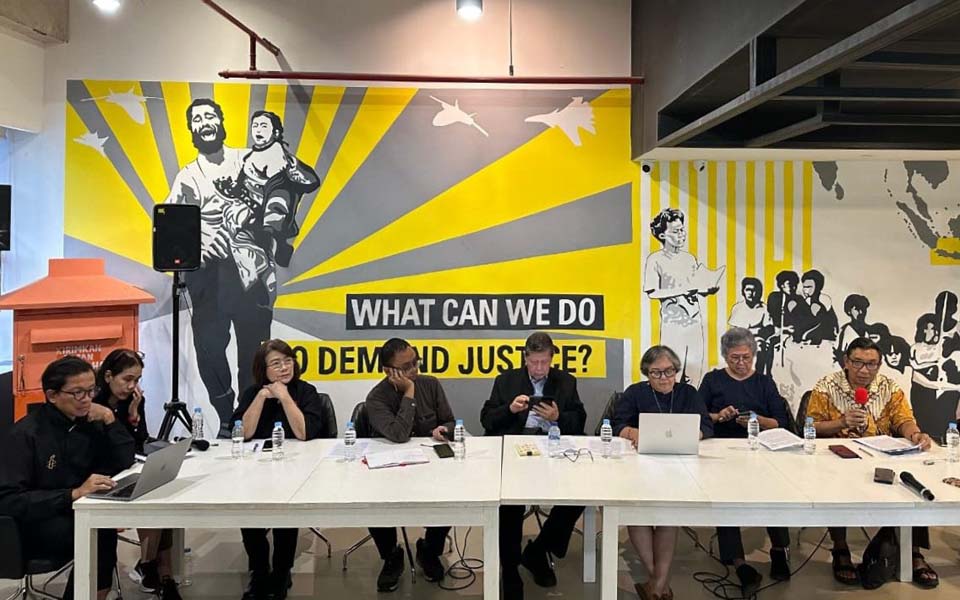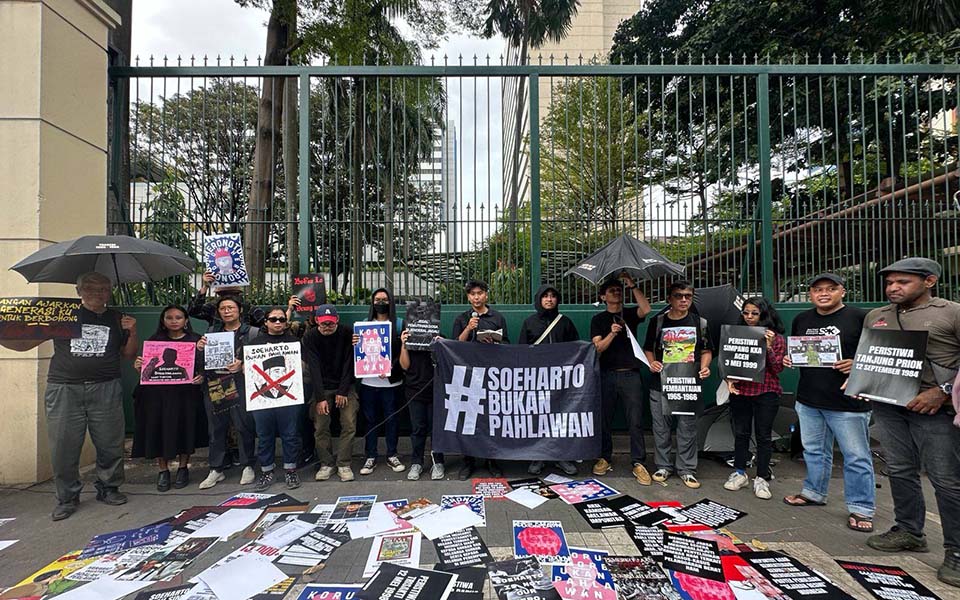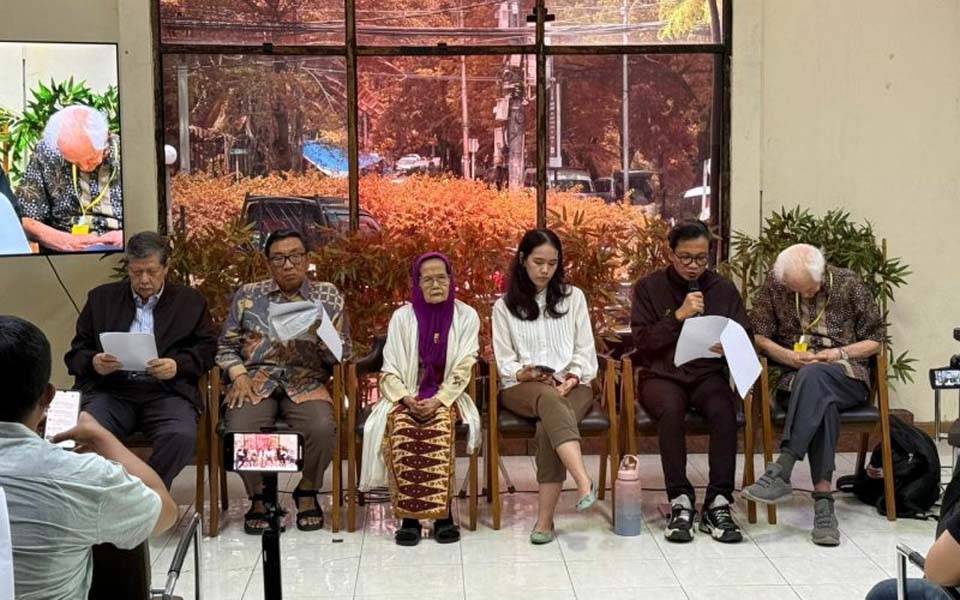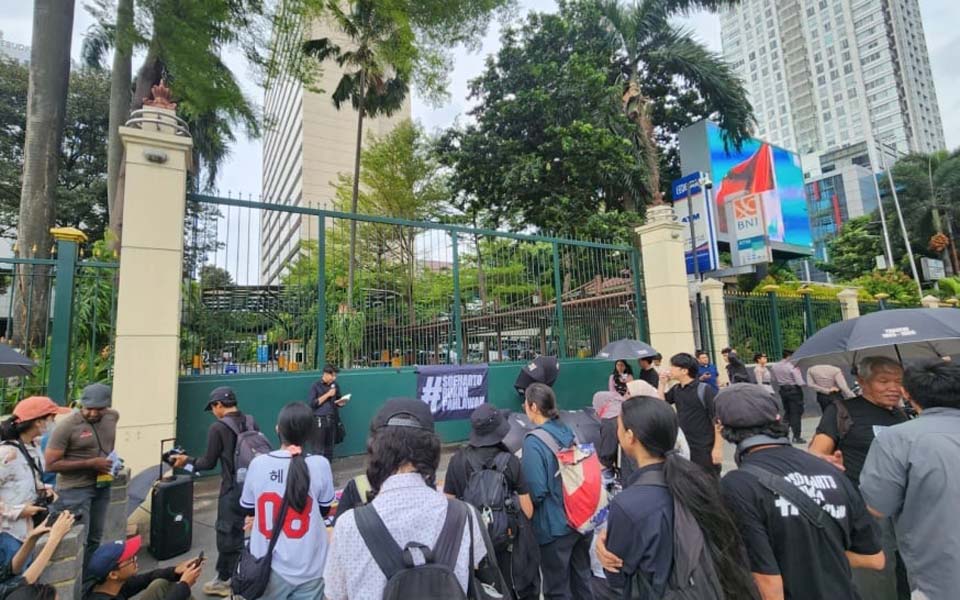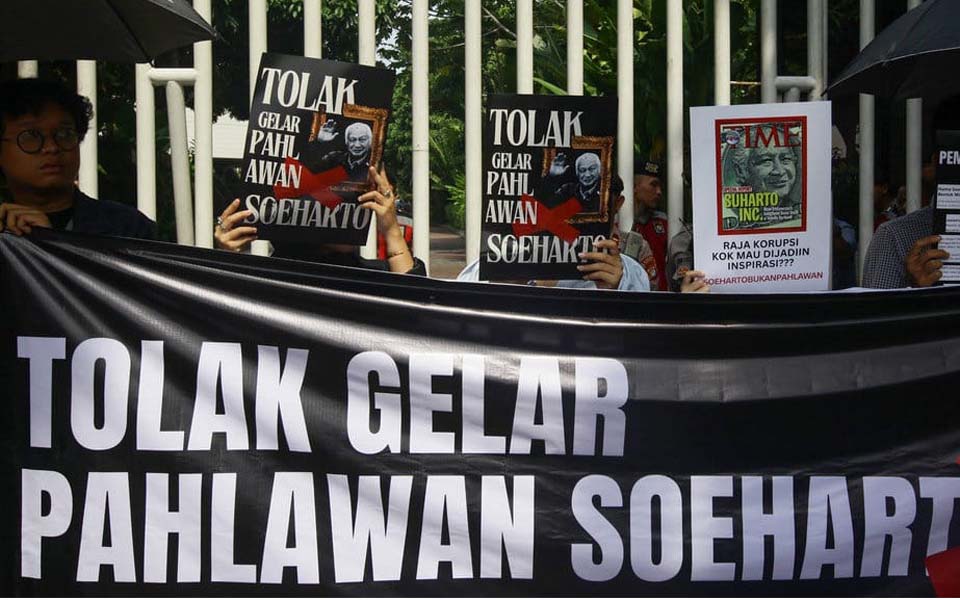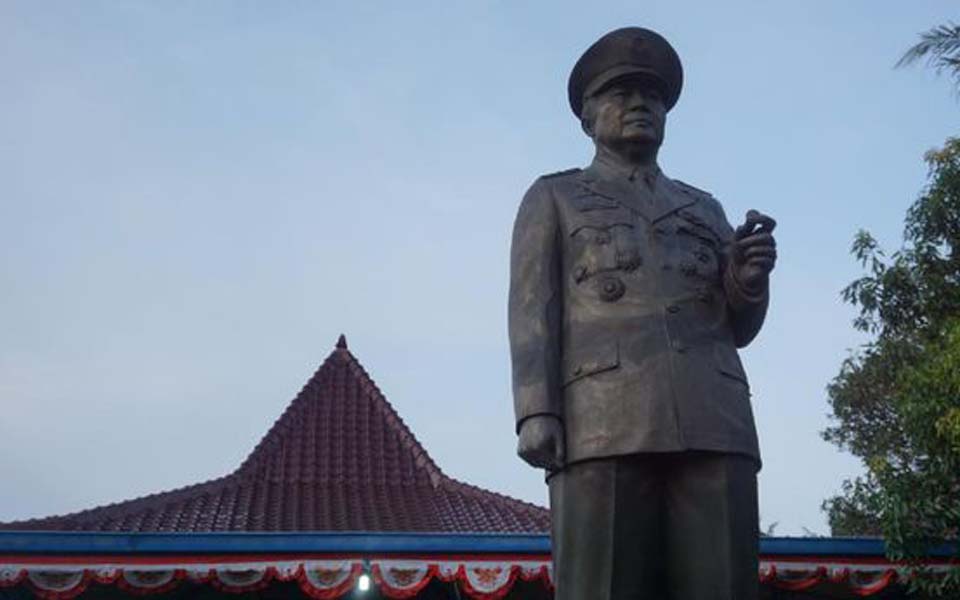Welcoming 80 years of Indonesian independence, the Indonesian History Transparency Alliance (AKSI) has warned of the dangers of a "national decline".
This danger is reflected in the damage to the foundations of the republic, namely the loss of respect for human values and dignity, enforcement of the rule of law and equal treatment for every child of the nation. Yet Indonesia was once an inspiration for the world in the fight against colonialism through the proclamation of independence on August 17, 1945, and the 1955 Asian African Conference (KKA).
However, this historical legacy was lost due to the paralysis of national awareness for 60 years after 1965. Indonesian citizens inherited trauma and experienced depoliticisation due to the ideas of nationalism stopping at and being limited to a discourse on development and security stability based on ultra-nationalism. Indonesian citizens even inherited an economic gap due to the dominance of a handful of rich people who control wealth equivalent to 50 million people.
Yet independence from colonialism is upheld by the message in the preamble to the 1945 Constitution, that independence is the right of all nations and colonialism in the world must be abolished because it is not in accordance with humanity and justice. A government of the people's sovereignty was demanded to protect the entire Indonesian nation and the spilling of all Indonesian people's blood, to promote public welfare, educate the life of the nation and participate in pursuing a world order based on independence, eternal peace and social justice.
In geo-historical and geo-political terms, Indonesia was important in the eyes of the world. Indonesia was the initiator and host of the 1955 KAA. The KAA inspired independence movements in many parts of the world that imagined a better world. Sending prestigious Indonesian students to various countries in the 1960s was an effort to realise the Indonesianist imagination about a country that is dignified. The 1965 tragedy however abolished all that imagination.
1965 became a milestone of regime change that altered Indonesia's course from a country with an insight into human liberation into a country that oppressed humanity under the control of the New Order militarism of the Suharto regime, which glorified physical strength, symbols and the use of violence, including sexual violence against women, as a way of controlling women while maintaining power. Efforts to build the nation ended and there was a total reversal of national life. The revolution ended and changed into a pseudo national development.
Although the anti-subversion laws were revoked after Suharto resigned in 1998, the authorities' control over the ordinary people continued. The New Order formed an authoritarian national security state that even now has been revived. As a result, the people lost their sovereignty to control power. In line with that, centralised economic policies have created acute inequality as well as systemic corruption resulting in the destruction of forests, land grabbing and mining exploitation without control. Justice is only an illusion for the victims and the ordinary people in general.
The 80 years of the country's journey has in fact let towards people's suffering, far from the ideal of prosperity for all people. Leaders no longer think about this nation being dignified and on par with other nations, but instead they rob the wealth of the country for themselves, or certain groups. This gloomy portrait is exacerbated by cunning people or historians who try to manipulate memory and history by not writing about the dark and traumatic experiences that occurred for the people.
Reform era governments have failed to change the national security state ala the Suharto regime. Indonesia has lost the opportunity to realise the ideals of independence. Such a situation also resulted in the first 10 months of President Prabowo Subianto's administration quickly showing the characteristics and temperament of the New Order, namely militarism, the use of violence, terror, ignoring human rights and anti-intellectualism.
AKSI, which cares about this country, hopes that the leaders and holders of the people's mandate will no longer play with the voices of the people, manipulate memory and history, and focus on the development of this country that is more dignified, just and upholds human rights.
AKSI hereby states:
1. The Indonesian government is pushing Indonesia towards a national decline in terms of the ordinary people, with the destruction of the foundations of democratic governance which have now been replaced by a national security state.
2. The principle of a national security state has been built since the takeover of power in 1965 and continued in the 30 year-period after the New Order, through the concentration of power and manipulation of legislation.
3. People are paralysed by their lack of historical awareness and sovereignty as human beings who think, which has given birth to a passive and apolitical society.
4. The state stands on an infrastructure of impunity, the absence of accountability for gross human rights violations that instils fear and anxiety into the younger generation through the jargon of latent dangers, foreign threats and foreign lackeys, in the name of aggressive emergency nationalism. In fact, what Indonesia needs is progressive humanism.
AKSI therefore:
1. Urges the government to revoke policies that are bringing about a national decline, such as policies to rewrite history, the determination of national cultural days coinciding with the President's birthday and giving an honorary military ranks to people who have clearly damaged the foundations of humanity and nationality in the past.
2. Urges the government to stop authoritarian practices through policies or other efforts that kill the foundations of democracy, including those that paralyse the function of the political parties in the parliament such as the formation of Indonesia Onward Coalition (KIM).
3. Urges the government to stop the criminalisation of freedom of expression through legal instruments and acts of violence by the state apparatus against elements of society that speak critically.
Thus this statement was delivered in Jakarta on August 14, 2025.
[Translated by James Balowski. The original title of the article was "80 Tahun Indonesia Merdeka: AKSI ingatkan bahaya Kemerosotan Republik".]





